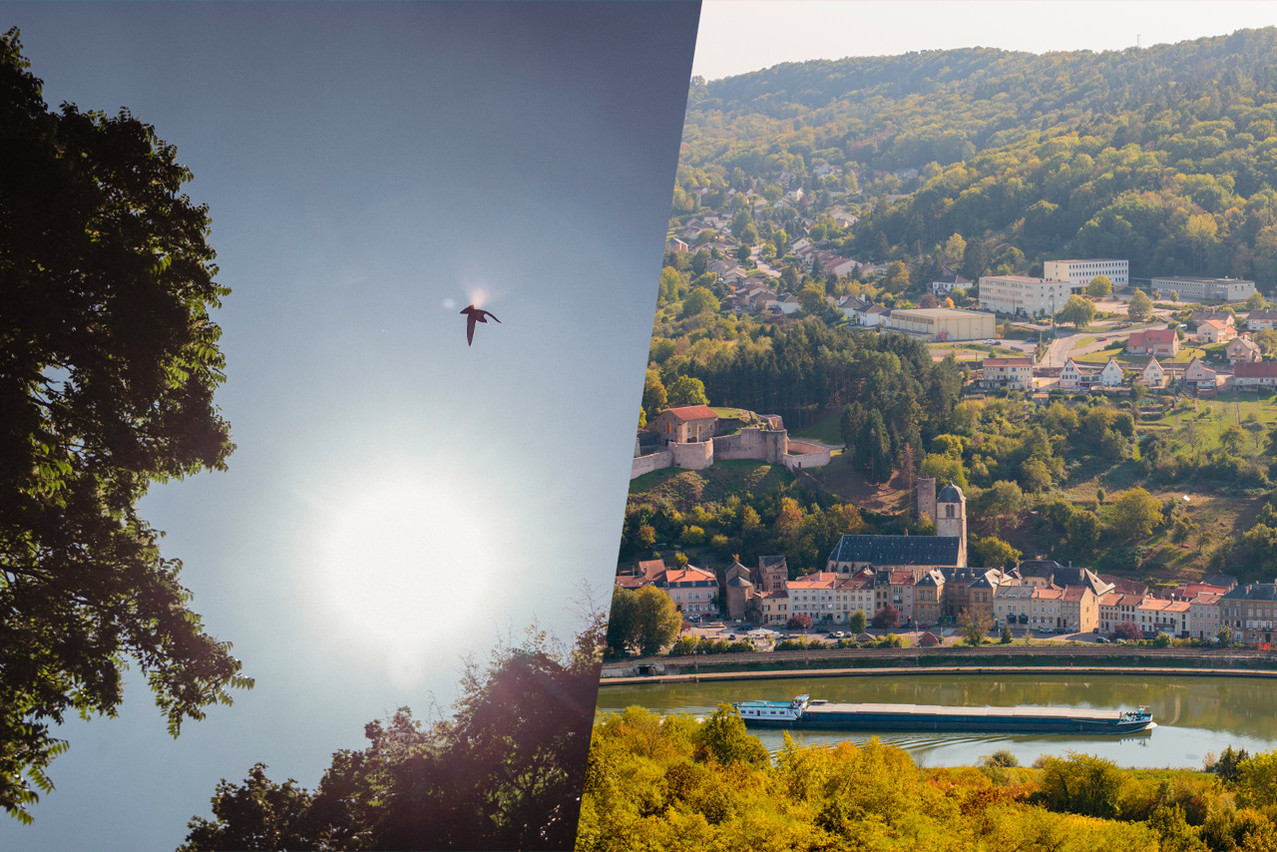Across Europe, countries are seeing an early start to summer. Some Spanish regions have had to endure peaks of up to 43°C this week. The south-west of France is expecting temperatures between 34°C and 36°C, with peaks of over 40°C depending on the region.
Temperatures in Luxembourg will hover around 30°C until the weekend, according to Meteolux, before peaking on Saturday 18 June. “According to our forecasts, Saturday will be the hottest day with peaks of 35°C and even 36°C depending on the location, most certainly along the Moselle,” said Luca Mathias, meteorologist at Meteolux.
Wave, heatwave... A vague definition
Talking about a “heat wave” is rather complex as there is no very precise definition of the terms. “At Meteolux, we use the term ‘heat wave’ to describe a situation where the temperature is above 30°C on several consecutive days,” said Mathias. When the maximum temperature of a day exceeds 35°C, Meteolux speaks of a “red alert”.
By Sunday, temperatures could fall back to between 24°C and 26°C--before rising again the next day to 30°C to 32°C. “The forecast still needs to be refined. For Sunday, there are still some uncertainties, because we have a model that predicts temperatures around 24°C and another model that expects temperatures around 30-31°C,” said the meteorologist.
No exemption from work
The high temperatures will also make certain jobs more difficult, especially on construction sites. The labour code does not provide for exemption from work in the event of excessive heat. “Regardless of the temperature, an employer is obliged to provide a water point for employees and to respect sanitary standards,” said Marco Boly, director of the Labour and Mines Inspectorate (ITM), adding that “an employer is obliged to ensure the safety and health of employees in all aspects related to work.”
In practice, some construction companies are adapting to the heat by starting their shifts two hours earlier and providing shade for rest periods, which are also increased. A construction company can request partial unemployment due to the weather. “People often think of negative temperatures or bad weather as a reason for weather-related unemployment, but it also works if high temperatures prevent work from going ahead. But this is a request that must come from the employer,” said Boly.
“It is also to avoid the extreme heat that the collective holiday takes place during the summer period (from Friday 29 July until Sunday 21 August this year, editor's note). But with climate change, which will intensify and extend the periods of high heat, we will surely have to think about the question of the protection of workers and adjust the labour code accordingly,” said the director of the ITM.
The ITM has published recommendations for work carried out outdoors, inviting companies to adapt to the heat by favouring the wearing of appropriate clothing, the use of mechanical assistance for arduous work, an increase in breaks for workstations requiring sustained physical action and the provision of drinking water to workers.
Staying hydrated and protecting yourself
The health ministry has distributed detailing the right thing to do in the event of extreme heat. It details the five golden rules in this respect. These are: drink water regularly; limit the consumption of coffee/tea and drinks that are too rich in sugar/caffeine, which have diuretic effects; limit exposure to the sun and avoid intense physical effort; and protect the elderly by helping them to stay well hydrated.
As far as the elderly are concerned, the Red Cross has also set up a telephone hotline on 2755 to obtain all the important information concerning the heat wave plan set up by the ministry of health. This plan offers people aged 75 or over, living alone (or with a person requiring assistance), with limited autonomy, with little support and without help from the dependency insurance, to register to benefit from surveillance visits and help with hydration in the event of high heat.
Finally, the Cancer Foundation reminds people that are available in Luxembourg to protect their skin from sunburn.
Pollution spike on Thursday
Meteolux on 16 June also warned that ozone particles might reach 160 µg/m³. The European threshold lies at 180 µg/m³, prompting speed limits of 90 km/h on motorways. Exposure to ozone can affect vulnerable populations the most. This includes elderly people, newborns, children, patients with respiratory (asthma, chronic bronchitis, ...) and cardiovascular disorders, and people doing sports or working outdoors.
Residents in this case should avoid intensive outdoors exercise, according to the agency. The rest of the population should also avoid using cars or high-emission vehicles and use public transports instead.
Additional reporting by Tracy Heindrichs
This story was first published in French on . It has been translated and edited for Delano.
